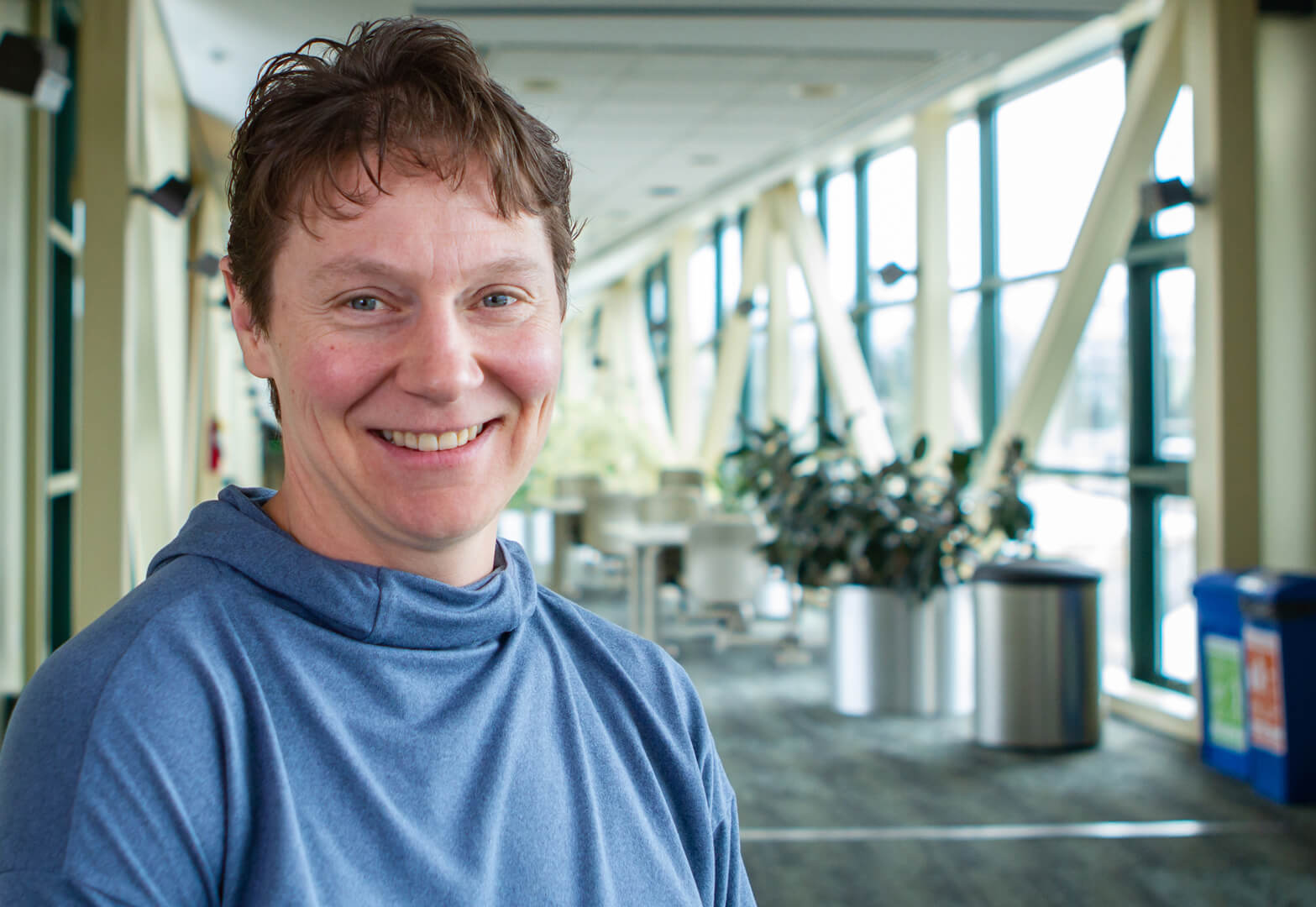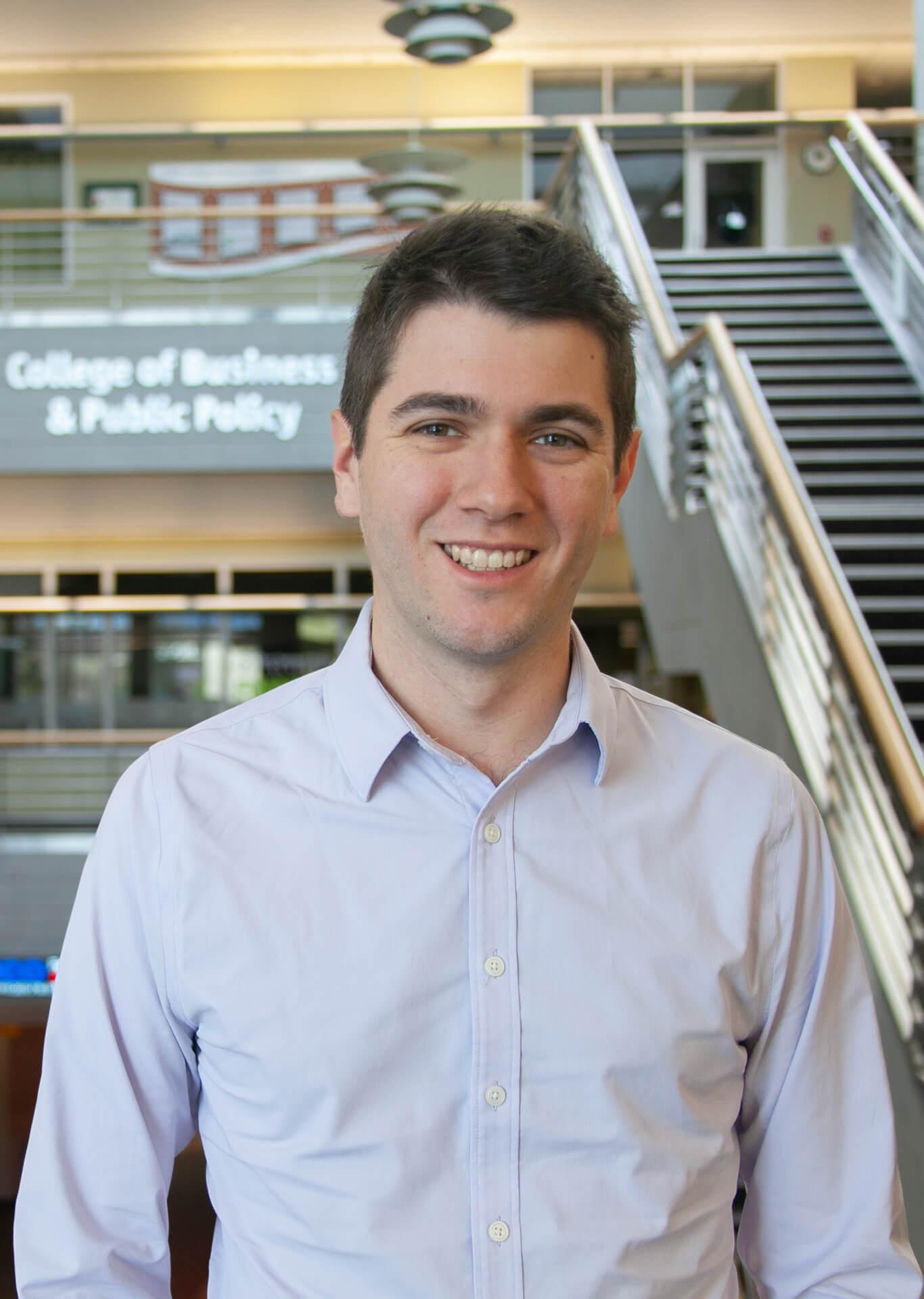Watson, Schmidt Named to Tenure-track Positions Within UAA’s College of Business and Public Policy
November 3, 2022Dr. Jennifer Schmidt and Dr. Brett Watson, faculty at the Institute of Social and Economic Research (ISER), have been named to tenure-track positions in the College of Business and Public Policy (CBPP), where ISER is located.
They will continue their research at ISER and will teach courses within CBPP’s Departments of Economics and Public Policy and Administration (MPPA).
“Dr. Schmidt and Dr. Watson are both accomplished experts in the area of natural resource management and policy,” Dr. Marie Lowe, Chair of the MPPA Department, said. “We are thrilled for our public policy and administration students to be taking their classes, especially with the new emphasis we are developing on natural resource policy. We are working with them on new methodological courses, for example, in geographic information systems and economic policy analysis. They are dynamic researchers and instructors. Students will enjoy working with and learning from them. Congratulations to them both on their new appointments!”
Dr. Jennifer Schmidt
Associate Professor of Natural Resource Management and PolicyDr. Jennifer Schmidt has been a researcher at ISER since 2015. During that time she has been a Principal Investigator (PI) or co-PI on research grants totalling nearly $21 million. Her current projects are funded by the National Science Foundation, State of Alaska, and U.S. Bureau of Land Management. Schmidt works with Alaska residents and communities in rural and urban Alaska to explore ways to increase community resilience towards natural hazards like wildfire, permafrost thaw, and rain-in-winter. She’s also conducting research to assess and improve food, energy, and water security in rural Alaska. Given the importance of global connectivity, Schmidt is part of a team looking at marine shipping, tourism, and mining in the Bering Straits region.
At CBPP, Schmidt is looking forward to being more connected with students, staff, and faculty members on campus. She will teach Research Methods in Public Administration with Lowe, along with a new Geographic Information Systems (GIS) course.
Balancing both teaching and research is a win-win arrangement, Schmidt said. They both require her to stay on top of her game, but in different ways. “Teaching and research both complement and strengthen each other. In teaching, I get to use the skills and techniques I use in my research, but in doing course prep I also am looking for new methods and approaches to include in lectures. Sometimes you find something new that can be used in future research projects. Graduate students are also a large part of research and the future, so by mentoring graduate students I naturally integrate teaching and research.”
Schmidt’s research background helps ground the theories and lessons she will teach in her courses. ”Research is where the rubber hits the road and you get to apply the skills and knowledge gained in coursework. Showing students the utility and practicality of what is being taught through an active research agenda empowers them to learn.”
Before joining ISER, Schmidt was a researcher at University of Tromsø in Norway.
“Spending time in Norway opened my eyes to the diversity among Arctic communities, cultures, and residents. For research it is important to understand the sense of place and how that influences what you do and your results. For teaching and research, recognizing that there are different ways of knowing, doing science, and learning is important.”
Dr. Brett Watson
Assistant Professor of Applied and Natural Resource EconomicsDr. Brett Watson joined ISER as a post-doctoral researcher in 2017. Since then he has co-authored numerous papers, on topics such as the effects of the Permanent Fund Dividend, the outlook for mining in the state of Alaska, and the economics of commercial fisheries.
Watson will begin his teaching role at CBPP with Economics & Public Policy, which explores how to apply economics to solving our most pressing social problems, like housing, income inequality, climate change, the energy transition, and sustainable development.
“Alaska's economy has always been shaped by natural resources,” Watson said. “Understanding how people and natural resources interact is fundamental to understanding the history of Alaska (particularly in the last 50 years), and also the key to understanding its future.”
Watson’s research at ISER tends to be applied to specific questions, he said. “Teaching gives me an opportunity to zoom out and put that research into a broader context. It also gives me an opportunity to share that research with my students in a different kind of venue that is more open to discussion and discovery.”
With a recent move to Rasmuson Hall, the home of CBPP on UAA’s campus, Watson is enjoying the vibrancy of being a part of the academic community, interacting with students and faculty interested in learning and growing, and – better access to coffee!
After growing up on the northside of Houston, Texas and attending college in Texas and Colorado, Watson says Alaska is home now. He enjoys cross-country skiing, paddling, and strategy games.
Learn More
Both Schmidt and Watson discussed their work earlier this year in an ISER webinar presentation: ISER and the future of its research in Alaska.

